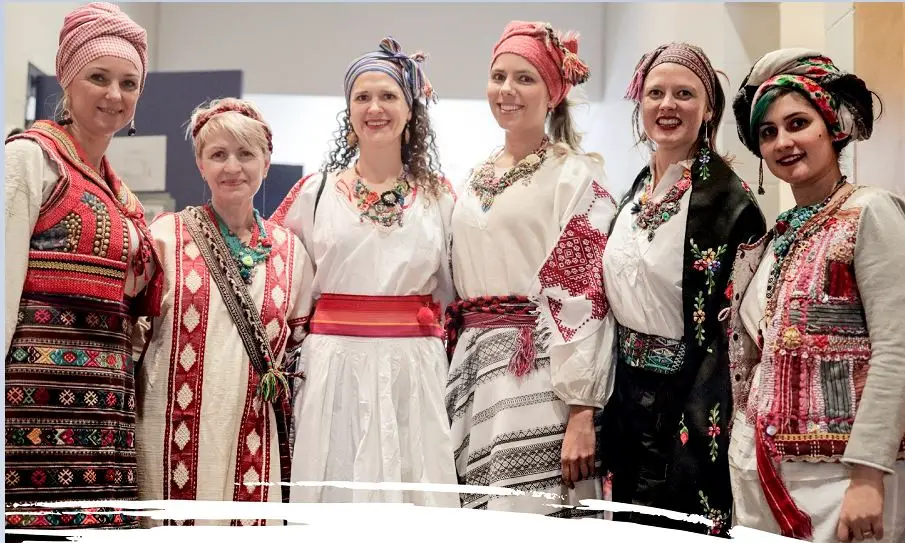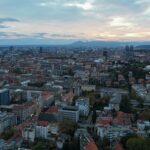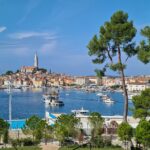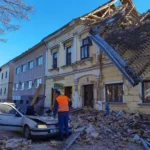Jakelina Listes originally born and raised in Split, Croatia (back in the day, 1971, part of former Yugoslavia). I immigrated to Canada in 2000, came back to Croatia for about a year and a half, and then back to Canada in 2003. I am currently still living in the British Columbia province of Canada, on Vancouver Island’s main city of Victoria, and I am in the process of getting ready for my return to Croatia. I have a degree in social work, and I am currently employed working for the federal government and have a small business making upcycled fashion and jewellery that I do on the side (also on Instagam). I lived in several provinces in Canada and have been involved in the local non-profit sector focusing on immigrants and other inter-cultural issues.
1. You made the switch to Croatia. Tell us a little about the decision process and how long it took for you to get on the plane.
I suppose the idea of me returning back to Croatia was present in my mind forever, as I was homesick for a long time and did not quite find my place in Canada. Despite being here for 20 years, and having a decent life ( in economic terms) and valuable experiences, there was a big part of my life that was missing. It would take a novel to list here all the nuances that make someone’s life great and that, when not fulfilled, leaves a gnawing feeling of missing out, longing, and emptiness.
My husband, who is Canadian, and I have been talking for a few years now about the possibility of buying some property in Croatia so that we can have a place to retire, thinking it will take years to accomplish this as we are in our early fifties. As time went by, my desire to return back was growing, and so did the search for real estate in Split.
In my case, the important part of this decision is the fact that Canadian society has changed a lot since I came here, especially during the pandemic years. It has gradually become a society that emphasizes many worldviews that are not compatible with my own values. I think I am simply too tired of trying to find my place here, and I told myself, hey you spent years here and gave it a good shot, but it is time to move on.
The final decision was made this September after my return from a 4-month-long visit to Split.
During that time, I bought a property in Kastela and settled in instantly, feeling this is it, it feels like home home. Coming back to Canada was hard, especially after being there for months, and something shifted in my mind, and I asked myself, why wait for retirement, why don’t we do what we want sooner while we are still relatively young.
So, here we are, selling our house in Canada and preparing to leave in a few months
2. What did your family and community back home think of your decision at the time?
Many people here in Canada are a bit surprised by our decision but ultimately see it as something most of them would like to do. Meaning, retire early, still have some good years to enjoy life, and fulfill some of the things we all put aside and never get to it, as life is not that long. My family and friends in Croatia are generally understanding why we want to do this, and are welcoming our return. There are some cautious remarks here and there in the sense that people in Croatia find it strange that my Canadian husband wants to move there just like that.
3. Where did you get your information about the realities of Croatia prior to coming?
As I am from Croatia and have been coming for a visit almost every year for the last 20 years, and I extensively follow what is happening in Croatia via media, social media, and talking to people, I am well aware of the Croatian reality. Unlike some people who were born and raised outside of Croatia and have not lived there, I don’t have illusions about the state of affairs there, and I know what to expect. In other words, the Croatian mentality is very familiar to me.
4. What were you most nervous about making the switch? What was your biggest fear, and what was the reality of what you found?
We are very excited actually. I anticipate we will have some headaches dealing with Croatian bureaucracy, but being employed by the biggest ministry in the Canadian government, I can testify that bureaucracy is terrible wherever you go. I have family and friends to help if thighs get stuck, so I don’t really have a lot of concerns.
5. Think back to the time before you arrived. What were your perceptions about Croatia, and how were they different from the reality you encountered?
Living abroad for many years gives you a unique perspective on your own homeland. I don’t look at the Croatian reality only from the lenses of someone from there, but also from someone who is coming from quite a different socio-economic and political milieu. This can be very interesting at times and leads to a lot of comparisons where Croatia gets the advantage in certain key elements like, in my case, having family and friends, feeling of belonging, familiarity with the place and culture, mentality, habits, food, etc. On the other side, there are some areas that would benefit from some of the attitudes that are more prevalent in Canada.
At this stage in life, the Croatian lifestyle suits me better.
6. You are still here, so obviously, the pros outweigh the cons. Tell us about some of the things that you love about being in Croatia, as well as some of the things you don’t like.
Croatia for people like me is very different than it would be for my husband or for those Croats born and raised outside of Croatia. I have a strong connection to my hometown and think it is a great place to live (even though, realistically there are a lot of things that are not great). For me, it is truly coming back home. I like that when I walk around Split, I have memories of places and people, I know its locations and history, and it means something. As I mentioned before, I know what to expect and how to go about it, which is what some other returnees who never lived in Croatia before often struggle with.
What I don’t like is what is wrong with many other parts of the world, incompetent and corrupt ruling class, exploitative economy, environmental degradation, and the overall decline in basic human decency. I also do not enjoy the chaotic tourism industry that Split succumbs to and the total lack of vision and planning for the city so that it can thrive for 12 months a year, not just in summer.
7. What advice do you have for others thinking about making a move from the diaspora?
To leave the expectations that things in Croatia are or are supposed to be the same or similar to wherever you are returning from. To remind yourself why you decided to move there in the first place, and set what your priorities are. To adapt to local culture and embrace it as that is the only way to adjust to a new reality and meet people and ultimately feel like it is a place you can call home.
8. How do you think Croatia can better assist those who are looking to return to the Homeland?
There is for sure a need for people to get more easily accessible information on what needs to be done for getting medical care, residency, driving licence, etc. Also, an agency or center that would serve immigrants to Croatia, regardless of where they come from, would be a logical move, as there are more foreigners coming to live and work in Croatia. I think tools such as Paul’s new book that speaks about just that- survival for foreigners in Croatia are also great assets. Another thing that any immigrant, even a returnee from the diaspora, can use is to observe people and their surroundings and be curious and ask, engage, show interest. That is a fantastic way to learn your way around a new culture. And let’s be honest, coming to Croatia from the diaspora is basically coming to a new culture.
****
Thanks, Jakelina, and good luck with stonethreadsjewellery.com
****
You can follow the TCN Croatian Returnees series here.
****
What is it like to live in Croatia? An expat for 20 years, you can follow my series, 20 Ways Croatia Changed Me in 20 Years, starting at the beginning – Business and Dalmatia.
Follow Paul Bradbury on LinkedIn.
Croatia, a Survival Kit for Foreigners is now available on Amazon in paperback and on Kindle.











